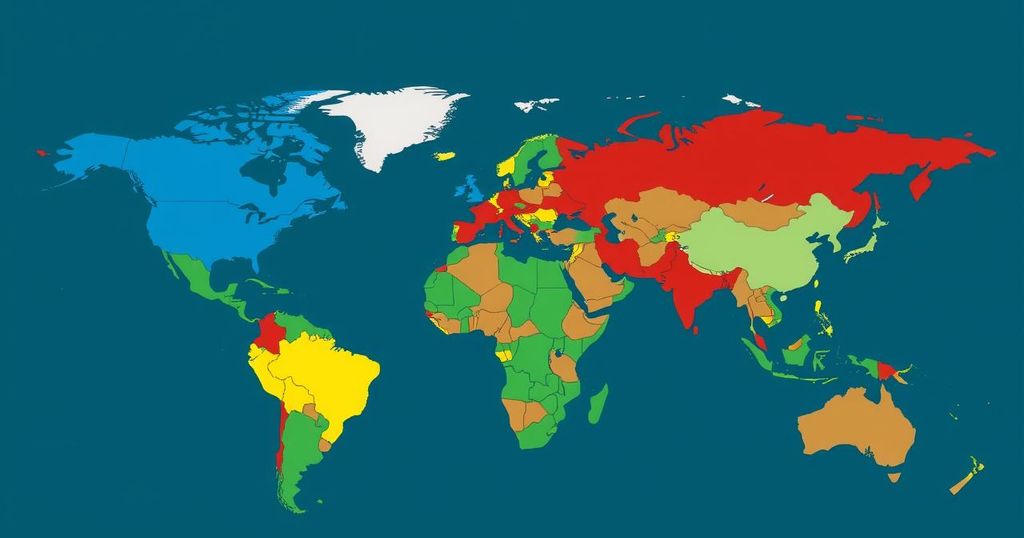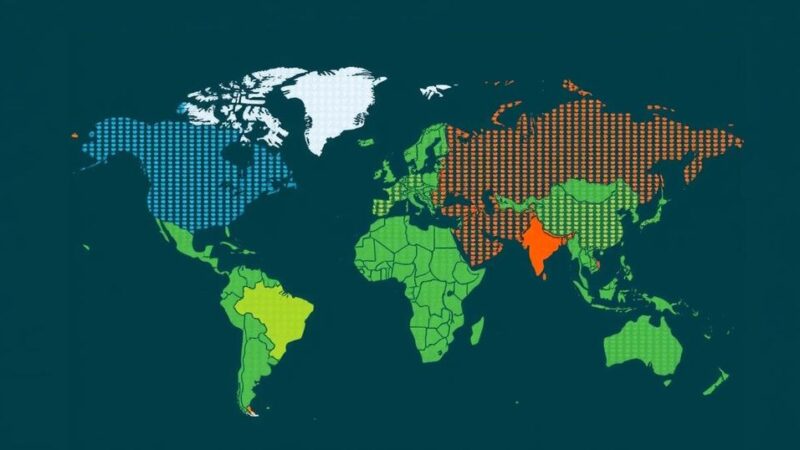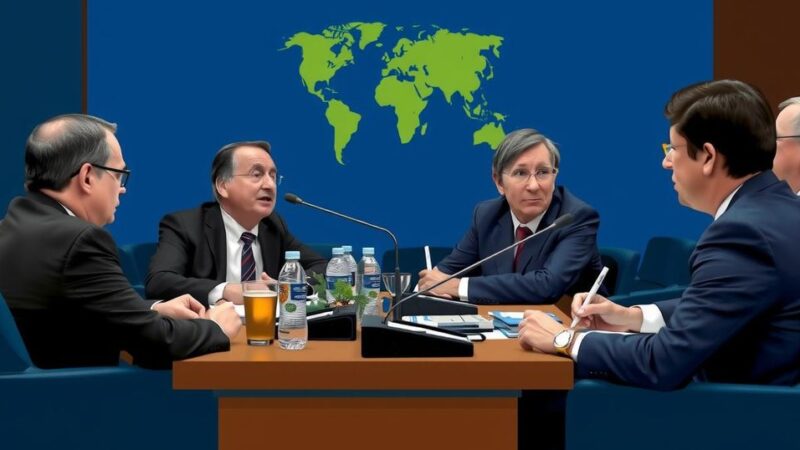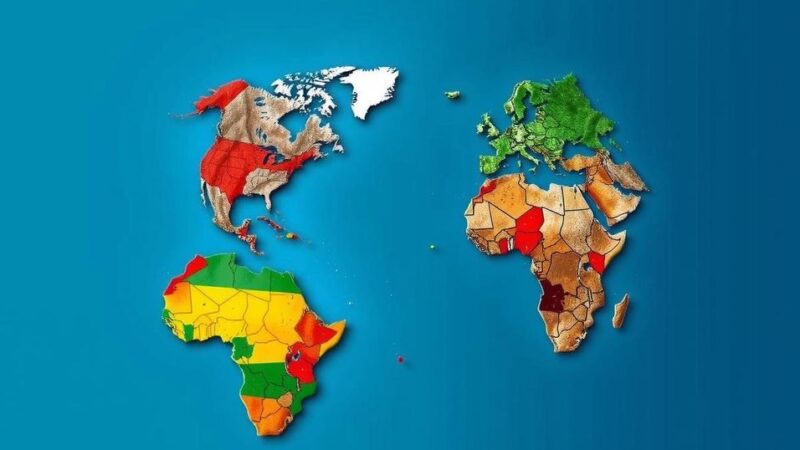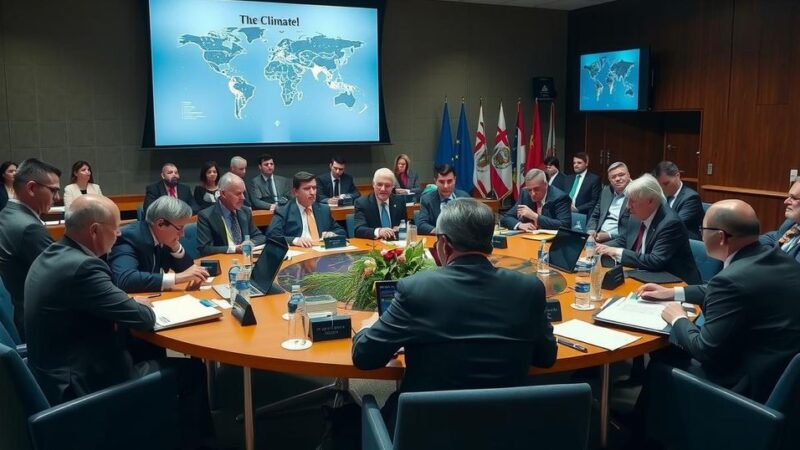Wealthy countries have agreed to boost climate finance support for developing nations to $300 billion annually during UN climate talks in Azerbaijan. This figure still lacks alignment with the essential financial requirements proposed by poorer nations, which highlights the ongoing debates surrounding adequate funding and a commitment to transition from fossil fuels.
At the recent UN climate talks in Azerbaijan, affluent nations have reached a consensus to elevate their climate finance commitment to $300 billion annually to assist developing countries in combating climate change. This agreement was finalized after intense discussions among key representatives, including officials from China, the EU, Saudi Arabia, and the United States. However, despite this increase from an initially proposed $250 billion, many developing nations assert that this amount is insufficient to meet their pressing needs for adaptation and transformation toward low-carbon economies.
The ongoing negotiations have seen significant pushback from representatives of developing nations, who criticized the earlier climate finance target as inadequate. The proposed amount was dismissed by many as a trivial sum given the scale of financial resources necessary to effectively tackle climate impacts. Furthermore, some affluent countries entered negotiations with a degree of reluctance, wary of potential commitments that might not be fulfilled under changing political landscapes.
Rich nations have indicated a willingness to initially agree to $300 billion, contingent upon modifications to the overall agreement’s language. Nonetheless, critics suggest that even this new commitment would fail to address the minimum financial requirements proposed by developing countries, who argue for a far more robust financing structure that incorporates grants instead of loans, to alleviate their existing economic burdens. Economics experts estimate that an annual financial influx of approximately $1.3 trillion is essential to support the climate transition in developing nations.
While climate finance remains the focal point of the discussions at Cop29, other pivotal issues continue to be debated, including a commitment to step away from fossil fuels, which has faced opposition from notable countries like Saudi Arabia. As the negotiations progress, it is evident that addressing these financial disparities and outline a clear trajectory for energy transition will be critical to achieving a comprehensive and effective climate strategy.
The discussions surrounding climate finance have taken a central role at the UN climate talks, emphasizing the obligations of developed countries to aid developing nations in addressing the repercussions of climate change. The historical context will reveal that wealthier nations have been challenged to fulfill their financial commitments from previous agreements, which has garnered frustration among those countries disproportionately affected by climate impacts. Various stakeholders, including economists and activists, advocate for substantial increases in climate financing, with some calling for mechanisms that would hold developed countries accountable for the long-term consequences of their carbon emissions.
In summary, the recent negotiation outcomes at Cop29 indicate a modest advancement toward addressing climate finance, with a proposed commitment of $300 billion per year from wealthier countries. However, this figure continues to fall significantly short of the requisite funding to support developing nations’ climate needs. The subsequent discussions will determine whether the updated financial commitments will lead to a tangible transition toward renewable energy and effective climate adaptation strategies.
Original Source: www.theguardian.com
